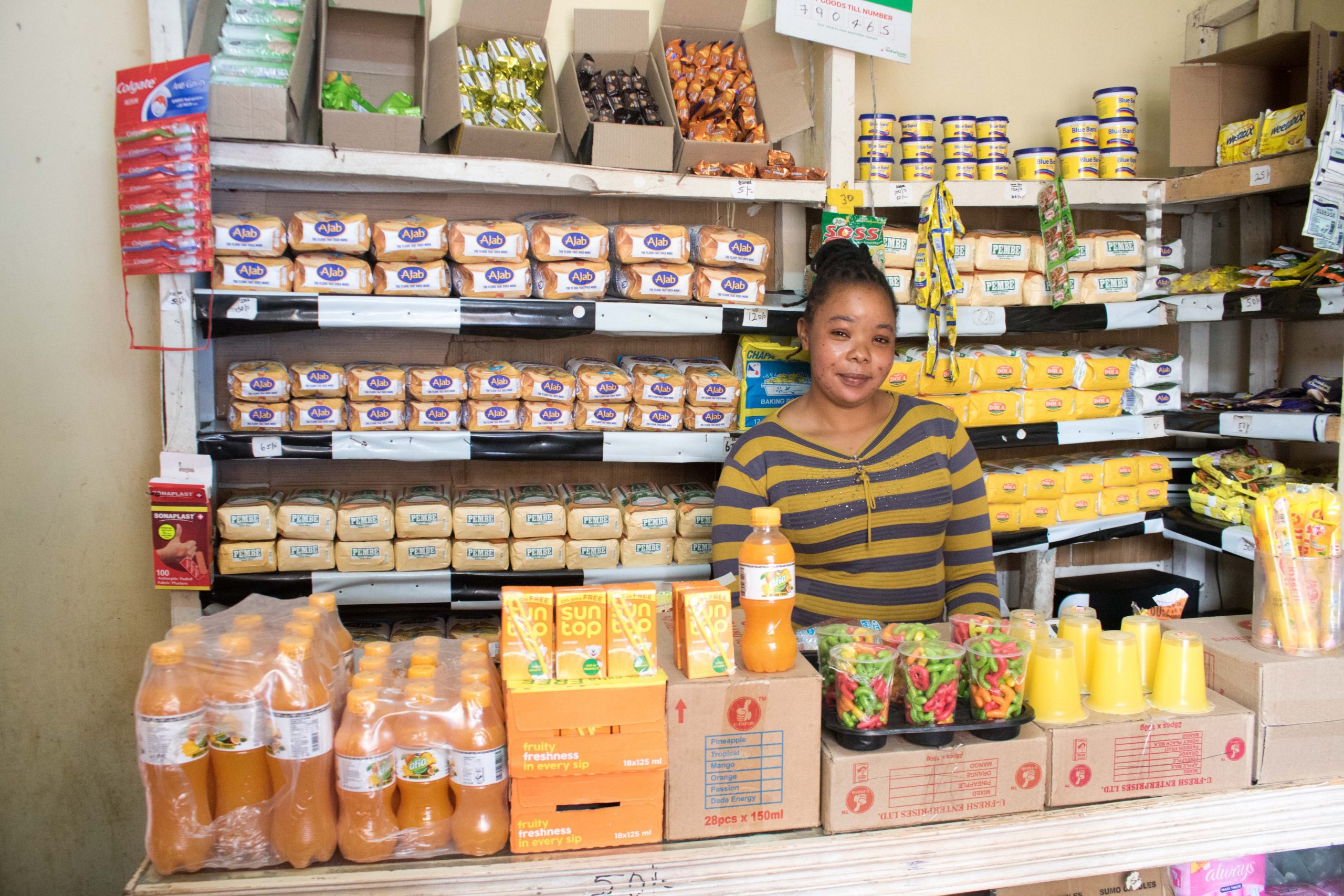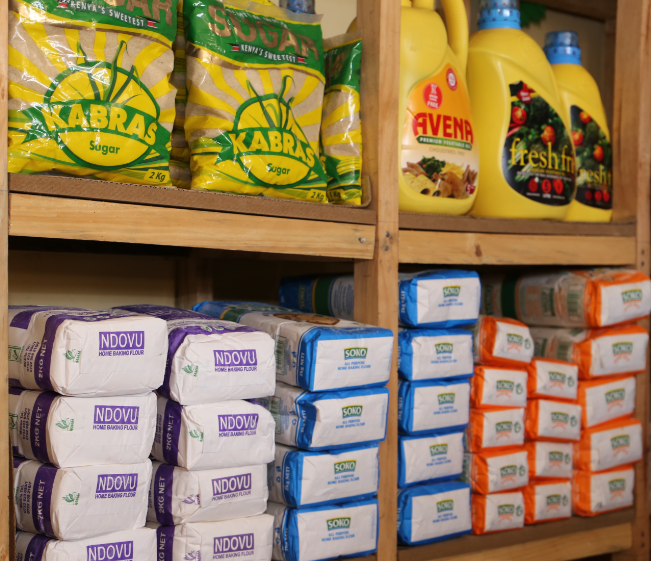Micro-Retailers Gain a Brighter Outlook with Access to Finance
In Kenya, the COVID-19 pandemic has made it even harder for entrepreneurs like Jacinta Musyoka to run their businesses. Without working capital, it can be difficult for many micro-retailers to restock their shops, pay rent, and put food on the table for their families. A TechnoServe program is combining financial support with technical advice to help 28,000 entrepreneurs in Kenya keep their micro-enterprises afloat and continue to serve their communities.

For nearly seven years, 30-year-old Jacinta Musyoka began her mornings with the same routine. By 5 a.m., she was already bustling around her house, helping her two children make breakfast and get ready for school before ushering them out to the school bus. By 6 a.m., she had already opened her small shop and would wait for suppliers to bring her milk and bread. Like many other micro-retailers in Kenya, Jacinta spent many years painstakingly building up a loyal customer base.
My customers at this time were mainly students on their way to school. They usually bought school supplies and snacks. Business picked up at lunchtime, with the majority of the customers coming to buy lunch items.”
— Jacinta Musyoka, micro-retailer, Kenya
Students would regularly visit her small shop in Kitengela, a town 20 miles south of Nairobi, Kenya. But in March of last year, the customers stopped coming.
Micro-Retailers Build Resilience During COVID-19
When the Kenyan government issued a nationwide curfew and restrictions on movement to curb the spread of COVID-19, the ripple effect on shopkeepers like Jacinta was immediate.
Small businesses are particularly vulnerable to the impacts of the COVID-19 because many of these micro-retailers have little to no savings to fall back on. The combination of lockdowns, curfews, and broader economic disruptions made it difficult for these businesses to maintain their sales, source supplies, and operate safely.
“Students, who are my biggest customers, were not going to school,” Jacinta recalls. “Most of my stock was perishable foods, which expired.”
And the few customers who did trickle into the shop couldn’t afford to pay. “When COVID-19 came, it hit my business hard. Most of my customers needed credit since their incomes had been affected, but they still needed food on their tables. What could I say? They had been good customers for years, and I knew them and their families. I could not say no.”
But with no money coming in to restock the shop, Jacinta was left in a difficult situation. She worried about how she would support her children and pay rent for her house and her business.

In Kenya, lack of finance was already a challenge for many micro-retailers, even before the onset of the COVID-19 pandemic. And the situation is even worse for women entrepreneurs, who often face additional barriers that limit their ability to access financial capital, such as lack of formal bank accounts or collateral for loans.
By combining financial support with timely technical advice, the mSPARK program — a partnership between TechnoServe and the Mastercard Foundation — is helping 28,000 entrepreneurs in Kenya keep their micro-enterprises afloat and continue to serve their communities during the pandemic and its aftermath.
Working in close collaboration with financial tech company 4G Capital, mSPARK is helping entrepreneurs access $4.4 million in repayable grants to cover immediate working capital needs, as well as strengthen their long-term access to finance.
Business Training and Access to Finance Helps Micro-Retailers Survive
In 2020, Jacinta joined TechnoServe’s Smart Duka program, where she learned essential business skills related to record-keeping, merchandising, and customer relations. Because she participated in the Smart Duka program, she qualified for a loan through the mSPARK program.
“I was called by someone from TechnoServe asking me if I would be interested in taking a loan,” Jacinta says. “I jumped at the opportunity, and two weeks later, I received the $182 loan.”
With the loan, Jacinta was able to pay rent and restock her shop. “Business is now good since my customers are back,” she says. “My customers are paying off what they owe me, so I can keep supplying them. The loan has really helped my customers and me.”
When Jacinta thinks about the training she received through TechnoServe, she says, “It has taught me never to give up. I would have sold the business and given up, but the training gave me hope, improved my skills, and made me look forward to the loan. It taught me to keep records, which has helped me avoid [product] wastage.”
A Bright Future, Despite Challenging Times
By the time Jacinta’s two children return home from school around 5 p.m., she has already prepared dinner and evening tea. She ensures they both do their homework and eat dinner, then heads back to the shop to close up around 10 p.m. Jacinta’s days are long, but she is grateful that the income from her shop is allowing her to take care of her family.
She has already paid back her first loan and is waiting for a second one, which she plans to use to restock her shop so that her customers never miss what they are looking for. “I see a bright future,” she says. “With time, maybe I can open more branches and have a wholesale shop.”
Support hardworking shopkeepers like Jacinta.




